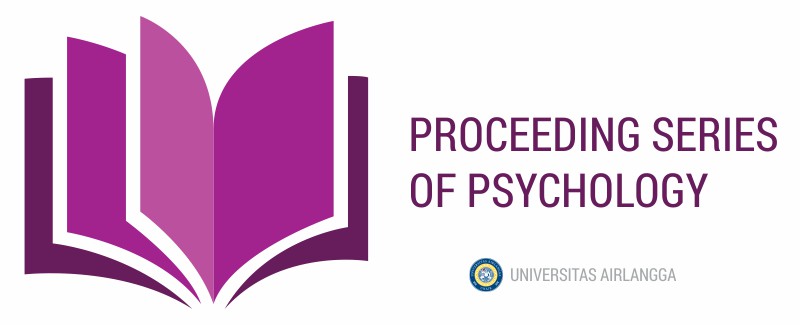Optimization Strategy for Maximizing Academic Potential of Gifted Underachievers with Low Self-Esteem Through Parenting After the Covid-19 Pandemic
Kata Kunci:
COVID-19, Gifted underachiever, Improving academic potential, Parenting, Self-esteemAbstrak
This study explores the needs of gifted underachievers, classified by Betts and Neihart (2010), and seeks effective parenting strategies to support their academic potential. Using a narrative literature review, databases such as SAGE, Google Scholar, and ResearchGate were searched with keywords related to gifted underachievers, self-esteem, and parenting strategies, yielding eight relevant articles. Findings suggest that self-esteem is essential for academic success (Batool, 2019), with authoritative, compassionate parenting positively linked to increased self-esteem (Hesari & Hejazi, 2011). However, pandemic-related challenges have strained parent-child relationships (Bülow et al., 2021), highlighting the need for strategies to strengthen these bonds and support self-esteem. This study offers insights for parents and counselors to enhance the academic and emotional development of gifted underachievers.
Referensi
ACT Government. 2021. Gifted and talented education: Gifted underachievers-Parent factsheet. URL: https://www.education.act.gov.au/support-for-our-students/g-and-talented-education
Ali, S. & Rafi, M. 2016. New strategies to identifying and empowering gifted underachievers. International Journal of Humanities Social Sciences and Education (IJHSSE), 3(4): 84—99. http://doi.org/10.20431/2349-0381.0304010
APA. n.d. Parenting. URL: https://dictionary.apa.org/parenting. Accessed at 17th October 2022.
Batool, S. S. 2019. Academic achievement: Interplay of positive parenting, self‐esteem, and academic procrastination. Australian Journal of Psychology, 72(2): 174—187. doi: 10.1111/ajpy.12280
Betts, G. T., & Neihart, M. 2016. Profiles of the gifted and talented. Gifted Child Quarterly. doi: 10.1177/001698628803200202
Bülow, A., Keijsers, L., Boele, S., van Roekel, E., & Denissen, J. J. A. 2021. Parenting adolescents in times of a pandemic: Changes in relationship quality, autonomy support, and parental control? Developmental Psychology, 57(10): 1582—1596. doi: 10.1037/dev0001208
D’Mello, L., Monteiro, M., & Pinto, N. 2018. A study on the self-esteem and academic performance among the students. International Journal of Health Sciences and Pharmacy (IJHSP), 2(1): 1—7.
Davis, G. A., Rimm, S. B., & Siegle, D. 2011. Education of the gifted and talented. Boston, MA: Pearson. 6th edition.
Gagné, F. 2010. Motivation within the DMGT 2.0 framework. High Ability Studies, 21: 81—99. doi: 10.1080/13598139.2010.525341
Hesari, N., & Hejazi, E. 2011. The mediating role of self-esteem in the relationship between the authoritative parenting style and aggression. Procedia - Social and Behavioral Sciences, 30. doi: 10.1016/j.sbspro.2011.10.333
Nagle, D. L. 1998. Underachievement in gifted students. Graduate Research Papers, 1257. URL: https://scholarworks.uni.edu/grp/1257
Neihart, M., et al. 2002. Promoting a positive achievement attitude with gifted and talented students, in The social and emotional development of gifted children: What do we know? Waco: Prufrock.
Renzulli, J.S., Baum, S.M., Hebert, T.P., & McCkuskey, K.W. 1999. Reversing underachievement through enrichment. Reclaiming Children and Youth, 7(4): 217—223.
Santrock, J. W. 2010. Psikologi pendidikan. Jakarta: Kencana.
Silverman, L. K. 2013. The psych 101 series: Giftedness 101. New York: Springer Publishing Company.
Steenbergen-Hu, S., Olszewski-Kubilius, P., & Calvert, E. 2020. The effectiveness of current interventions to reverse the underachievement of gifted students: Findings of a meta-analysis and systematic review. Gifted Child Quarterly, 64(2): 132—165. doi: 10.1177/0016986220908601
Weeland, J., Keijsers, L., & Branje, S. 2021. Introduction to the special issue: Parenting and family dynamics in times of the COVID-19 pandemic. Developmental Psychology, 57(10): 1559–1562. doi: 10.1037/dev0001252
Unduhan
Diterbitkan
Terbitan
Bagian
Lisensi
Hak Cipta (c) 2024 Aloysia Ayfen Senjaya, Nono Hery Yoenanto, Pramesti Pradna Paramita

Artikel ini berlisensiCreative Commons Attribution-ShareAlike 4.0 International License.


